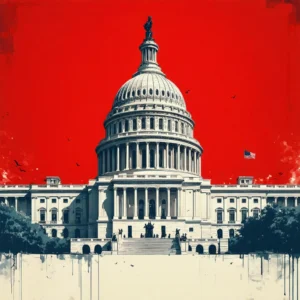
Introduction: The Dawn of a New Legal Reality
In the aftermath of a collapse that shatters Western civilization, the legal landscape transforms drastically. Lawyers find themselves at the forefront of crises, tasked with reinterpreting legal principles and establishing a framework for justice amid chaos. Consequently, the need for innovative legal strategies becomes urgent. Moreover, legal professionals embrace a hands-on approach to rebuild societal norms and cultivate trust among unstable communities. Indeed, this article examines the various challenges and opportunities that lawyers experience while working within a post-apocalyptic environment.
Reinventing Legal Practice in the New Order
Understanding the Collapse and Its Implications
The collapse of Western civilization implies the breakdown of centralized governments, extensive regulatory frameworks, and traditional legal institutions. Subsequently, legal professionals transition from conventional practices to alternative dispute resolution and community-based adjudication. Furthermore, lawyers acknowledge the necessity to adapt their skills, which include negotiation, diplomacy, and conflict resolution. Additionally, legal education adapts by incorporating simulated dystopian scenarios to train practitioners for unpredictable circumstances.
Transforming Legal Institutions
Lawyers rapidly reconstruct legal institutions by drawing upon established common law with an innovative twist. They develop tailored legal mechanisms that address the unique needs of fragmented communities. For instance:
- Community Tribunals: Informal judicial panels convene to resolve disputes using evolved forms of contract law and restorative justice.
- Mobile Legal Units: Lawyers travel to remote settlements, thereby delivering essential legal services, advice, and conflict mediation.
- Digital Courtrooms: In areas where technological infrastructure survives, virtual platforms enable lawyers to convene hearings and negotiations.
Undoubtedly, these reforms equip lawyers with the means to guide justice while fostering community resilience.
Legal Education and Training in Dystopian Scenarios
Progress arises from adapting educational programs to reflect the realities of post-apocalyptic life. Legal training programs integrate scenario-based workshops, role-playing, and collaborative problem-solving. Moreover, academic institutions stress the importance of:
- Ethical dilemmas specific to survival contexts
- Crisis management and rapid decision-making
- Interdisciplinary collaboration with experts in security, medicine, and community leadership
Thus, these courses prepare future legal practitioners to confront uncertainties with confidence and creativity.
Practical Approaches to Post-Apocalyptic Law
Immediate Priorities and Strategic Initiatives
Lawyers confront an urgent need to re-establish order, safeguard human rights, and maintain social cohesion. They quickly develop tactical approaches that include:
- Establishing Codes of Conduct: Lawyers draft provisional legal documents to build a semblance of order. These codes aim to guide community behavior in the absence of established laws.
- Building Multi-Stakeholder Coalitions: Legal professionals collaborate with community leaders, security experts, and humanitarian organizations. This approach fosters inclusive decision-making and resource sharing.
- Adapting to Local Resources: Lawyers recognize that access to legal texts, technology, and communication is uneven. Consequently, they anticipate alternative methods to disseminate legal information quickly.
Furthermore, legal practitioners integrate interdisciplinary perspectives. For example, they consider sociological implications and cultural idiosyncrasies to harmonize legal frameworks with local customs.
Developing New Legal Concepts and Tools
Amid the collapse, novel legal concepts emerge as lawyers think creatively. They introduce ideas such as Temporary Civic Governance (TCG), which grants provisional authority to local councils to handle immediate conflicts and disputes. Moreover, transitional legal tools, such as mobile and digital arbitration centers, facilitate:
| Legal Tool | Description | Expected Outcome |
|---|---|---|
| Temporary Civic Governance | Decentralized councils with limited jurisdiction | Maintain order and resolve local disputes |
| Mobile Legal Units | Mobile teams of legal experts | Provide rapid response and on-ground legal support |
| Digital Courtrooms | Online platforms for legal proceedings | Ensure accessibility of justice in insecure areas |
Every measure carries a dual focus on immediate stabilization and long-term institutional development. Consequently, these frameworks fortify the legal system despite the disruption of established power structures.
Strategies for Lawyers to Hit the Ground Running
Steps Toward a Functional Legal System
To hit the ground running after civilization collapses, lawyers need to follow a clear roadmap. They implement a series of actionable steps:
- Assess Immediate Needs: Initially, professionals evaluate the most urgent legal challenges, including property disputes, criminal activities, and civic unrest. Simultaneously, they survey the available resources and infrastructure.
- Engage with Community Leaders: Hence, legal practitioners arrange meetings with local influencers. They gain insights into the community’s values, needs, and potential obstacles.
- Create a Provisional Legal Charter: Subsequently, lawyers draft an interim legal charter that defines basic human rights, responsibilities, and the guiding principles of law enforcement.
- Implement Conflict Resolution Mechanisms: Finally, stakeholders establish conflict resolution protocols based on restorative justice and community-based mediation. Consequently, these structures aim to rebuild trust and social cooperation.
These steps combine to set the foundation for legal rebirth, ensuring that lawyers contribute significantly to community stability and sustainable governance.
Innovative Tactics and Networking Opportunities
Post-apocalyptic law encourages lawyers to adopt new tactics. They engage in continuous learning, share experiences, and explore interdisciplinary collaborations. In this spirit, legal professionals rely on several innovative methods:
- Case Studies and Peer Reviews: Lawyers exchange success stories and construct comprehensive case studies to inspire others.
- Collaborative Training Workshops: They host seminars that combine legal theory, ethics, and crisis management. Indeed, these workshops accumulate collective wisdom while ensuring every participant contributes unique expertise.
- Technology Integration: Since conventional systems may falter, legal teams integrate emerging digital technologies to maintain records, manage cases, and facilitate remote consultations.
Moreover, lawyers utilize transitional communication channels, enabling them to update legal practices according to cultural shifts. Therefore, the adoption of such innovative methods increases the likelihood of a stable revival in justice systems.
Legal and Ethical Considerations in a Post-Collapse Society
Balancing Stability with Justice
Lawyers face moral dilemmas when enforcing laws in a world that has undergone significant upheaval. They continuously evaluate where the right balance lies between swift resolution and thorough justice. In so doing, they stress the need for:
- Transparency: Legal processes must remain open and equitable, and the rationale behind each decision should be accessible to affected communities.
- Accountability: Every legal actor accepts the responsibility of their decisions. Consequently, robust systems for internal review and community oversight emerge.
- Inclusivity: Legal systems encourage participation from diverse community members, thereby avoiding biases and promoting a robust understanding of justice.
Furthermore, ethical training plays a crucial role in preparing lawyers for daunting circumstances. They reflect on past experiences and continuously adapt ethical guidelines to ensure that every legal decision prioritizes human dignity.
Community Empowerment and the Future of Law
Notably, community empowerment plays an essential role in post-apocalyptic legal frameworks. Lawyers strategically:
- Form Advisory Committees: These committees comprise community elders, professionals, and activists who offer perspectives on local challenges.
- Organize Public Forums: In these forums, residents discuss policy changes, legal principles, and the evolution of governance structures. Such gatherings build confidence and mutual respect.
- Assign Legal Liaisons: This approach ensures that every settlement connects with a legal representative who coordinates with the broader network of legal professionals.
In this manner, the legal system experiences a dual transformation: it not only adapts to a new order but also nurtures the role of community input. By blending traditional legal thought with modern, adaptive practices, lawyers foster an inclusive environment for communal development.
Conclusion: Building a Legal Foundation for the Future
In conclusion, the collapse of Western civilization challenges lawyers to rethink conventional legal frameworks. They uncover emerging areas such as digital arbitration, decentralized governance, and community-driven law-making. Lawyers occupy a vital space in the rebuilding process, demonstrating resilience and creativity. Consequently, they build bridges between historical legal traditions and futuristic approaches tailored for a disrupted world. Additionally, lawyers remain proactive by organizing regular training sessions, engaging in community dialogues, and integrating digital technologies into their practice. Furthermore, proactive legal practitioners continuously update their regulations and strategies to align with evolving community needs. These efforts undoubtedly paint a promising picture of a resilient legal system that thrives even in adversity. Moreover, the journey from chaos to order requires persistence, collaboration, and an unwavering commitment to justice. By embracing adaptive methodologies, legal professionals not only revive the rule of law but also cultivate a new societal framework built on transparency, accountability, and communal strength. Ultimately, post-apocalyptic law emerges as a beacon of hope in turbulent times. Lawyers, with their unique expertise and innovative spirit, assist communities in establishing sanity amidst disruption. As a result, the future remains promising for legal professionals who demonstrate the courage to lead and the vision to rebuild a just society.




